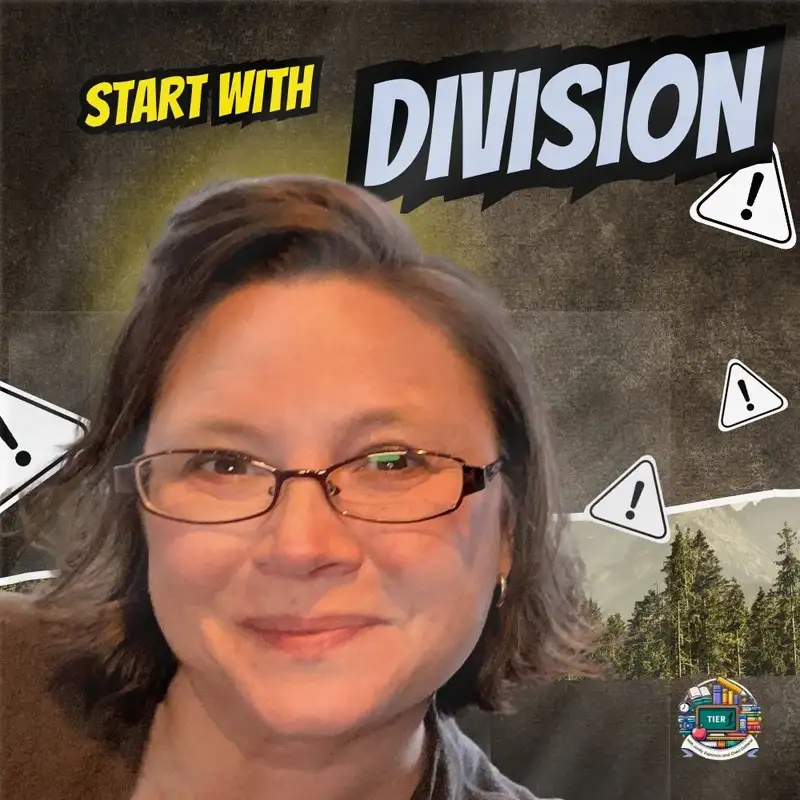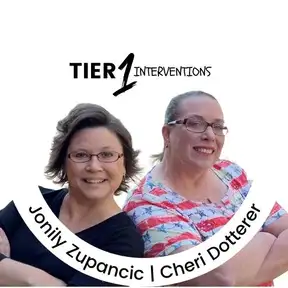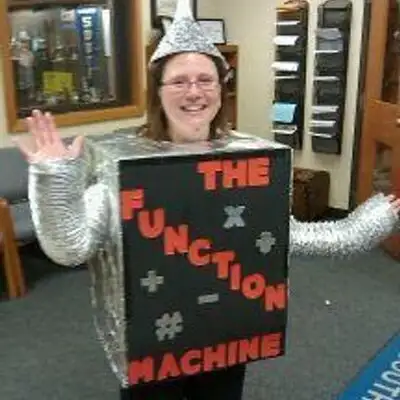
Why Division is More Foundational Than Addition
Hey everybody, it's Cheri Dotterer
here at Tier One Interventions podcast.
I'm here today with Jonily Zupancic
and we are in class today with a live
group of ladies and gentlemen who are
learning about the Mastery Math method.
So I'm gonna let Jonily talk and if
there's any intervention that I wanna add
to the puzzle, we will do but for now,
I'm signing it all over to Jonily and let
us learn a little bit about mathematics.
Girl.
Y'all, this is Jay-Z.
I'm Jonily Zupancic, I'm your math
specialist, your main Mathineer.
I if you are listening to this podcast or
you're watching this podcast on YouTube I
want to give a disclaimer and a warning.
This is level two.
You're listening in on a level two
version of Mastery Math method.
Mastery Math Method is strengthening
our tier one core general classroom.
We cannot have in our schools effective
interventions and effective tier two and
tier three without the strongest core.
So if you're listening to this, that's
the mindset that I want you to have.
You should be listening to this.
If you are a general classroom teacher,
a special ed teacher, a parent, a
school board member, a superintendent, a
curriculum director, a principal, every
stakeholder should be involved in the
qualities of a strong tier one general
classroom environment and the experiences
that students are going to have.
But again, the disclaimer
is this is upleveled.
Natalie, I'm gonna use your word.
I love it.
I think it was uplevel it like
you're, it's, this is definitely the
level version of the mathematics.
So to get the lower level versions,
you'll listen to some other podcasts,
but don't not listen to this
because you don't understand it.
Please share the movement, and subscribe
on YouTube Tier one interventions podcast.
Tell your friends, neighbors,
relatives, enemies.
We don't care who it is.
And subscribe.
So behind me, you're gonna see
the result of many other groups
that I am leading this year.
So I'm leading a masterclass
group, a mastermind group.
But put your information in the comments.
We will get back to you.
You know what, Cheri, I
always forget about this.
I always forget about this.
You are so good.
I love you so much.
And I'm gonna reiterate that if you're
listening on a podcast or you're
watching the podcast on YouTube,
I've already said and subscribe.
We have to ask ourselves, did
any of it change the behavior?
Did any of it change the behavior?
And if the answer is no, then
we have to do something that's
gonna change the behavior.
So don't just get online and throw out
your complaints about the school system.
Okay.
Nobody wants to hear that.
Let's have good positive energy and
real conversations about strategies
and techniques that can actually
make a difference and make changes.
I'm leading a Saturday math group.
There's lots of different types of
groups that I'm leading this year.
And this was one of the main
content pieces that I started
this school year off with.
And it is the CES.
The CESC is for building a culture.
C is for culture building and
launching a culture, a flavor, a
tone, a brand in your classroom.
So I'm gonna talk a lot about the
feel of the classroom in Mastery Math
Method E for the CESE is essential.
If everything is important,
nothing is important, so I'm
gonna be focusing on essentials.
There are certain things in math
that are absolutely essential
that leverage everything else.
We were talking before we actually
started the podcast recording.
And there was a question that said,
do we have to start with addition or
subtraction or can we start with division?
So someone here said, I just listened
to your division is counting podcast.
I wanna do that with my littles.
I wanna do that with my kids
that are really far behind
in math, math, mathematics.
I wanna do that with my strugglers.
Like I loved the division is counting
podcast, but do I need the addition,
subtraction, and multiplication?
One first.
The ultimate answer is no.
Division is more essential than addition,
subtraction, and multiplication.
Division exposures and division
experiences are more essential.
So if I'm gonna teach operation,
I'm gonna choose to teach
division more than anything else.
Then I'm gonna use division as
the vehicle to teach addition,
subtraction, multiplication.
If you haven't listened to the
episode with division is counting,
go back and take a look at that.
There are actually two of them now.
Hey everybody, it's Cheri again.
If you're loving these strategies
and you want to join our Mastery
Math Method Masterclass, we hold
this hour long event once a month
and we'd love to have you join.
What we talk about there is how to
improve your math skills in 10 days.
Can you imagine 10 days, whether you
are a math teacher or an occupational
therapist, you can see exactly how to
shift teaching so that every student,
no matter their starting point, can
master core math concepts and reserve.
So reserve your seat today and go
over to disability labs.com/calendar
to check out the next event.
there's level one division is counting,
and level two division is counting.
Then as we are exposing kids to division
and we're teaching addition, subtraction
and multiplication through it, we have
now shortened the time for mastery.
You see a lot of things that
I hear in schools and with
teachers is we don't have time.
We don't have time.
We need more time.
We don't.
We do not need more time.
As a matter of fact,
I'm gonna cut your time.
In a third.
I'm only gonna give you a third of your
time, and I'm gonna tell you with the
mastery math method strategies, you can
do all of this and more in a third of
the current time you have with students.
By focusing on essentials and the right
essentials, you can't pick the essentials.
We are going to pick the essentials
for you because for the last 26
years, I have studied what the high
leverage concepts of mathematics are.
Think about toddlers for a moment.
'cause I wanna give a
concrete example here.
Think about toddlers for a moment.
What are toddlers good at?
I should say this.
What do toddlers know a lot about?
They're not good at this because a
lot of them don't like doing this, but
what do they know a lot about sharing?
Equally, three-year-olds are very aware.
If they don't have the same exact amount
as somebody else that is division,
we're losing a great opportunity
by wasting our time on addition,
subtraction, and multiplication.
Think about the other thing that toddlers
know a lot about, asking questions.
My friends, when kids get to
third, fourth, fifth grade.
Secondary.
We have untaught them
to ask great questions.
We have schooled it out of them.
We have unlearned them.
This is what school is doing, this is what
traditional school is doing to our kids.
So essentials is what you're gonna
hear in the mastery math method,
and that is what's going to allow
us to teach more math in less time.
It's gonna allow kids to achieve
more mathematics in less time.
Even our most struggling
population, CES, the S is seasons.
Now how do we get it all in?
The number one factor in student
memory and retention of content
is interactions over time.
Interactions over time.
How do we get it all in?
How do we get more interactions over time?
It's by teaching math in
seasons in the school year.
There are five seasons.
The first season as we're recording this
is right now because it's August as you're
hearing this, it could be any season.
But the first season is right
now, and I call the first
season, first 15 days in first.
In the first 15 days, I expose my
students to all of the math in my entire
curriculum, not for their mastery.
They're not gonna master it all,
but they're exposed to my entire
curriculum in the first 15 days.
And then in season two is
really like October to December.
I expose them to the whole
curriculum again at an up level.
And then season three is January.
We call January math in a month.
It's a replication of the first 15
days in season one, and we expose
all of our content, mainly are
essentials the whole month of January.
So technically my goal is to expose
students to everything and have the
majority of the master my entire
year content by the end of January.
That's what happens with
the Mastery Math Method.
The Mastery Math Method is the
comprehensive course that is going to
make all of what I've just said happen.
Remember, you're listening
to level two, so I'm going to
way up level the mathematics.
And then keep in mind, if you teach
littles, you're not going to replicate
the teaching of the mathematics that
I'm gonna share with you today, but
I'm going, but I need you all try here.
Thanks for tuning in toLevel
Two Mastery Math Method series.
If this feels heavy, don’t worry, next
episode we lighten the load by diving
into one of our favorite hands-on
activities: The Locker Problem.
You’ll see how one deceptively
simple problem unlocks deep learning
for students at every level."
Until then, remember.
every student deserves the chance to
see themselves as a mathematician.
And as Cheri and Jonily
say, Go Be Awesome!
Go Be Brilliant!
For you were put here
for such a time as this.
Episode Video
Creators and Guests


